In the months leading up to University Health Services announcing gender-affirming care will no longer be offered by Aug. 1, members of the conservative alumni group The Rudder Association advocated to have it removed, leaked emails show.
Two emails — one by Matt Poling, the group’s president, and another by Clifford Hopewell, a neuropsychologist — were sent to the Board of Regents, Chancellor John Sharp, President Mark Welsh and Dr. Nancy Fahrenwald, a health services official, on April 20 and May 5. Both extensively advocated for the care’s removal from campus, describing it as “medical malpractice” and saying “liability” Texas A&M was risking was not worth it.
The Rudder Association, or TRA, is a conservative group of alumni set on “preserving, defending and perpetuating the Texas Aggie Core Values” and the culture of former students. Members of the group have met with administrators and members of the Board of Regents in the past and caused change at various levels, including a Fish Camp reform that saw it drop “diversity” as a value.
Poling, the group’s figurehead, published his statement on TRA’s website. With a list of 14 reasons, he argued the practice “should be suspended” on campus. Gender-affirming care “can include any single or combination of a number of social, psychological, behavioral or medical (including hormonal treatment or surgery) interventions designed to support and affirm an individual’s gender identity,” according to the World Health Organization.
“Specifically, we don’t believe that such interventions, which are used to impair normal sexual development or to induce secondary sex characteristics of the opposite gender, should be prescribed or provided by Texas A&M employed or contracted clinicians,” he wrote.
The second sender, Hopewell, an A&M alumnus with a master’s degree in clinical pharmacology, is a board-certified clinical neuropsychologist recognized as a fellow by the American Psychological Association. He is also a former president of the Texas Psychological Association.
“It has come to my attention that the TAMU Health Center either has or is considering dispensing cross sex hormones and other drugs to mentally ill students who claim to have ‘gender dysphoria,’” Hopewell wrote in the email. “I would emphasize the liability of the University Health Services and the TAMU System for providing drugs with known dangerous side effects which are not approved and which are given solely for cosmetic and non medical reasons.”
Hopewell said if the matter were to go to court, he “may well be called to testify in lawsuits against TAMU” as a subject expert and said University Health Services may be committing malpractice.
The emails come after conservative outlet Texas Scorecard published an article in February criticizing the treatment and its use at A&M. A university spokesperson told Scorecard that of the 48,192 office visits in 2023, only 44 students — all consenting adults — paid for gender-affirming care. No university funding paid for the appointments or treatment, the spokesperson said.
“Those 44 students went to a total of 129 appointments,” the story reads. “Brown added that in 2022 it was 33 patients that went to 103 appointments, 22 students to 48 appointments in 2021, 25 students to 40 appointments in 2020 and 15 students to 56 appointments in 2019.”
In a call, Hopewell said he never viewed the Scorecard story and doesn’t remember how he found out A&M offered gender-affirming care, but he emphasized he likely saw it through his membership with TRA.
“I felt like it would be helpful for me to clearly explain the issues to the president and the Board so that they would understand the issues involved,” Hopewell said.
Hopewell claimed to be the subject-matter expert on the topic and sent the letter not because of TRA, but because he viewed the practice to be wrong. The only response he received was from the Office of the President, which said it would respond to his inquiry, though he said he never received a follow up. Ultimately, Hopewell said he is pleased with A&M’s decision to no longer offer the care.
“First of all, that protects A&M from what’s going to inevitably be some legal action,” Hopewell said. “Secondly, my opinion is the university health clinic has no business doing this. This is like if they all of a sudden decide they’re going to do heart transplants. That’s beyond their capability.”
Emails from Matt Poling and Clifford Hopewell
A&M System spokesperson Laylan Copelin said in an email the decision was made at the university level, not the System level. He did not respond to questions on whether the Board of Regents influenced the decision in any way. A&M spokesperson Kelly Brown said neither President Welsh nor University Health Services officials spoke with TRA about gender-affirming care.
A chief concern among those against gender-affirming care, including TRA, is that the majority of recipients go on to regret the treatment. However, data analysis suggests only about 1% of people who undergo gender-affirmation procedures later experience regret.
Biochemistry senior Matthia Klatt has been receiving male-to-female hormone replacement therapy from University Health Services since April. To them, the decision “came out of the blue.”
“And very little reasoning, too,” Klatt said. “It was just a short email and then no follow-up. I’m still honestly pretty confused about it.”
Klatt heard the news while on their way to work on Monday, and the rest of the day was spent making emergency calls and appointments — a “frustration and disappointment.”
“You’re always worried about stuff like this, and it sucks that it actually happened,” Klatt said. “I don’t even know where the decision came from, whether this was a Beutel decision or whether a university [or] government decision. We literally don’t know at all. All we were told is that A&M will no longer be prescribing HRT and that we have a month to figure it out.”
A recurring sentiment among those impacted is that the one-month notice is not enough time. With waitlists months long and few options existing in Bryan-College Station, Klatt said they don’t know what to do, and they plan to meet with a local Planned Parenthood to explore options.
“I just have to deal with the effects of coming off the hormone replacement therapy until I find a replacement,” Klatt said. “I don’t really know honestly. I can’t imagine the medical implications of that would be great, but I guess I don’t really have another option if I can’t find treatment.”
Klatt said Beutel’s treatment improved their quality of life and mental health.
“When I first started taking antidepressants, I never noticed how anxious I was until suddenly I wasn’t as anxious,” Klatt said. “The same thing with HRT is I never noticed how much really I wasn’t living until I got the correct hormones for my brain and gender identity. I feel so much more alive now. I can’t imagine not having it and going back to the way it was before.”
Klatt said they found a community in Transcend, a transgender-focused organization on campus where students can “make friends and share experiences,” its website reads. The student organization was also a point of focus in Texas Scorecard’s February article. But Klatt feels community resources aren’t adequate to deal with the change in medical care.
“One month is just not enough time,” Klatt said “One month wouldn’t even be enough time for any other type of care — like if Beutel stopped offering psychiatry care, one month also wouldn’t be enough there. One month isn’t enough.”
Transcend is part of a university-wide, student-run coalition named the Queer Empowerment Council, or QEC. Formed after the Pride Center’s closure in 2023, QEC holds nine member organizations and serves as a “united front” against actions like the end of gender-affirming care at A&M, according to Kenna Ashen. Ashen is a graduate student in materials science and engineering, and she currently serves as an advocacy chair at QEC.
Statements from QEC and University Health Services
“There’s been a lot of recent anti-trans legislation and policies across the country, but in Texas specifically, there were 69 anti-trans bills just this last legislative session,” Ashen said. “I’m not surprised — there’s been a number of things happening across campus, too, like the closure of the Pride Center, but I was still hoping that A&M would be a more supportive system than this. I was hoping that this would not happen.”
Ashen said QEC is gathering resources and help for those impacted, and despite the decision affecting a small group, she believes it has a big impact on the overall LGBTQ+ community on campus, especially after A&M’s Pride Center was forced to close after Senate Bill 17 in 2023.
“It puts a lot of us in a situation where our friends are going to be struggling to find care within the next month — which is pretty much impossible,” Ashen said. “That’s going to be really, really tough for our community as a whole.”
QEC’s goal over the next month is to get the university to reverse the decision and at the very least extend the deadline, Ashen said.
A statement from an A&M spokesperson was released July 3.
“The decision to stop offering gender affirming care at Beutel Health Center (starting Aug. 1, 2024) was made by university administration and university health officials after a thorough review of our resources, capabilities and the evolving healthcare needs of our student population,” the statement said. “While we understand the importance of these services, it was determined that providing specialized gender affirming care falls outside the scope of our current healthcare model and resources.
“We recognize that this change may impact individuals who rely on these services, and we are here to assist in transitioning their care to appropriate providers,” the spokesperson continued. “A message with this information was sent earlier this week to each impacted student through their health portal. Our staff will be available to provide guidance, referrals and support. For those needing assistant [sic] in finding alternative care or have other questions or concerns, please email uhsinfo@tamu.edu.”
Matt Poling did not respond to a Battalion inquiry in time for publication.


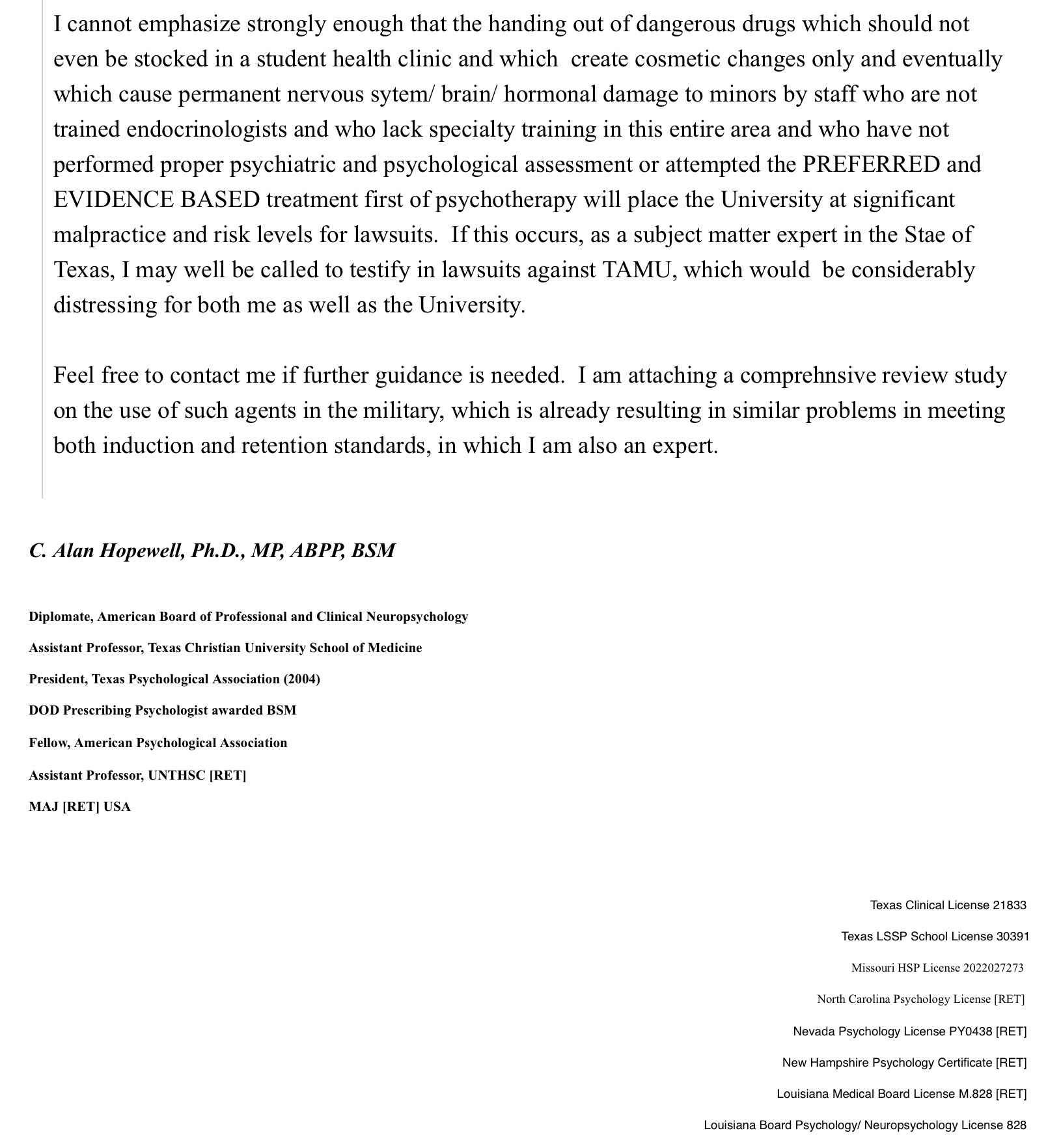
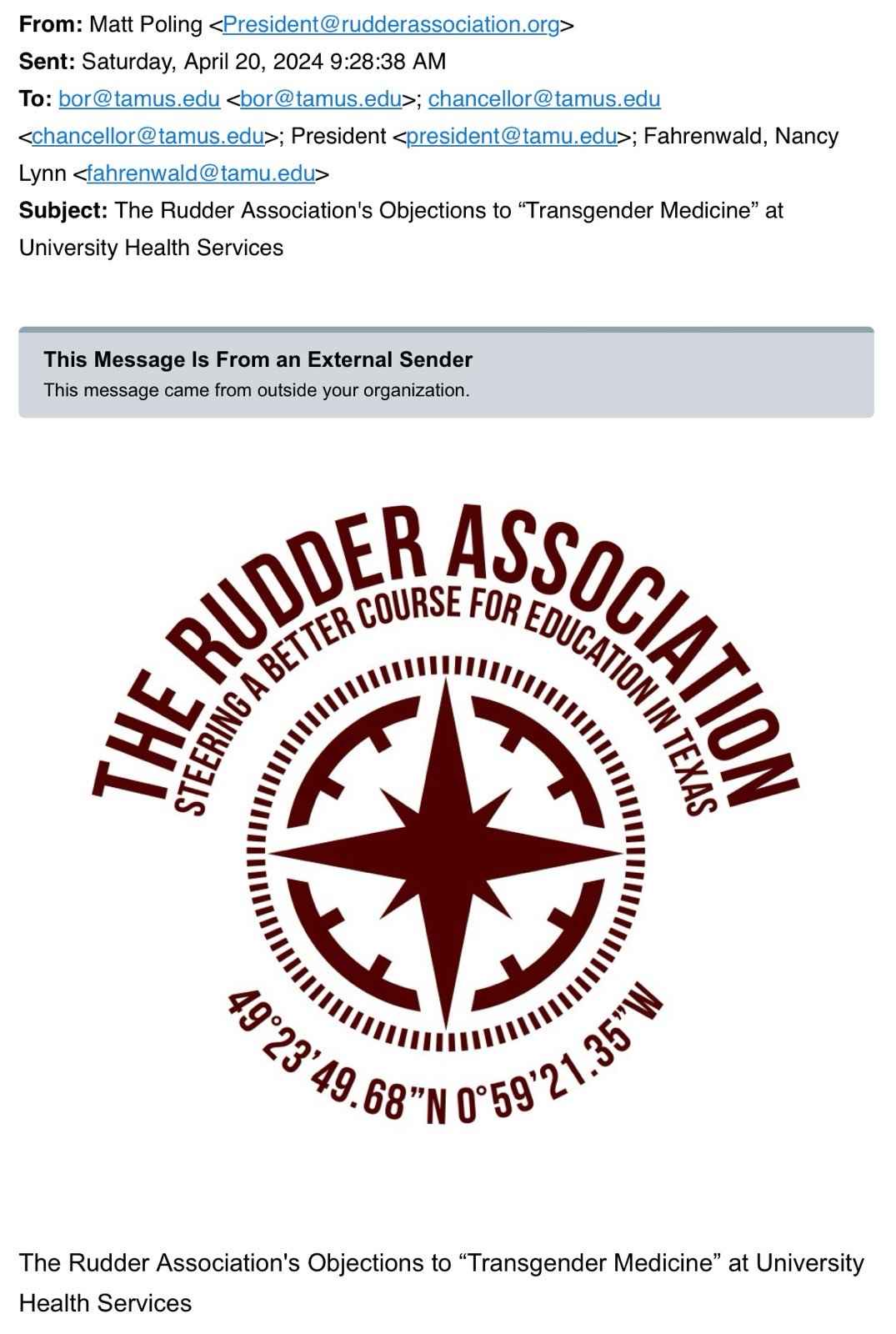
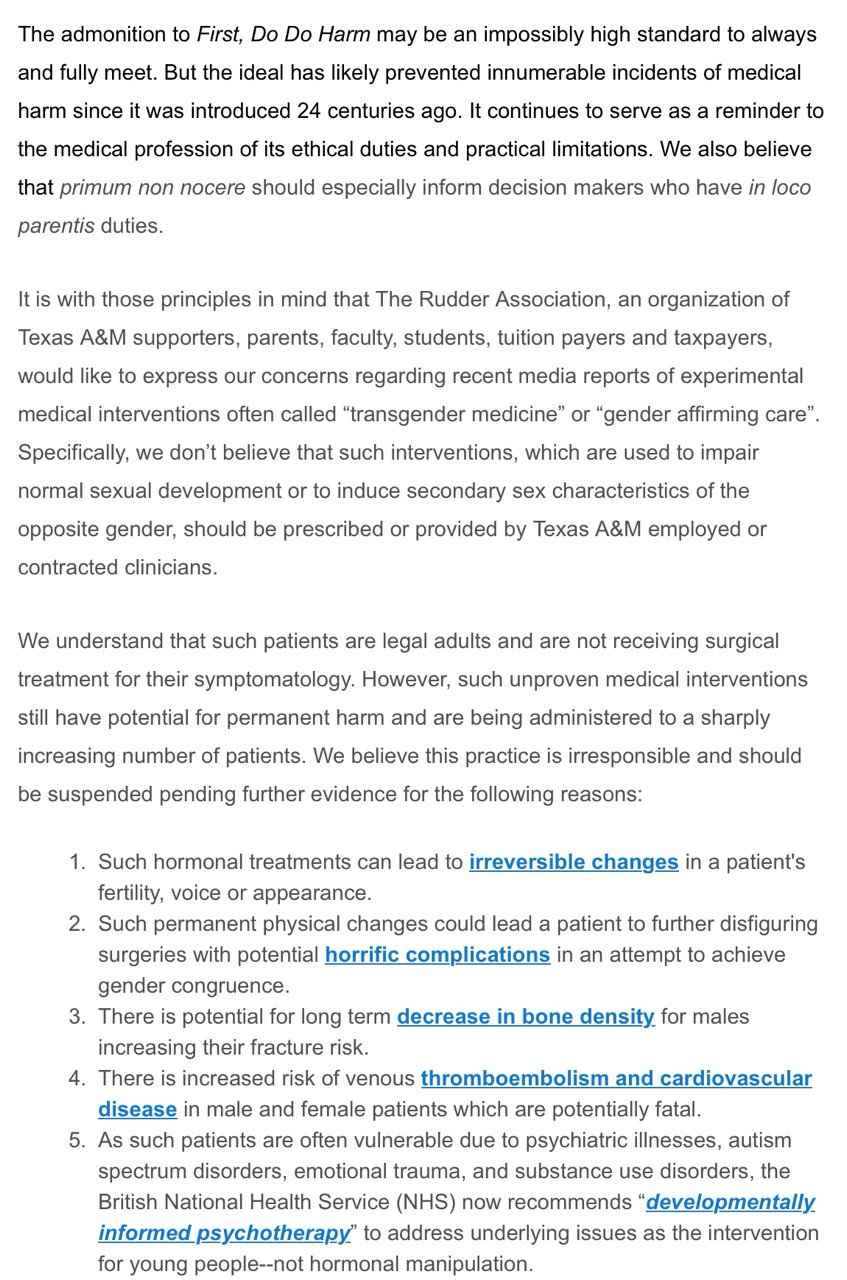
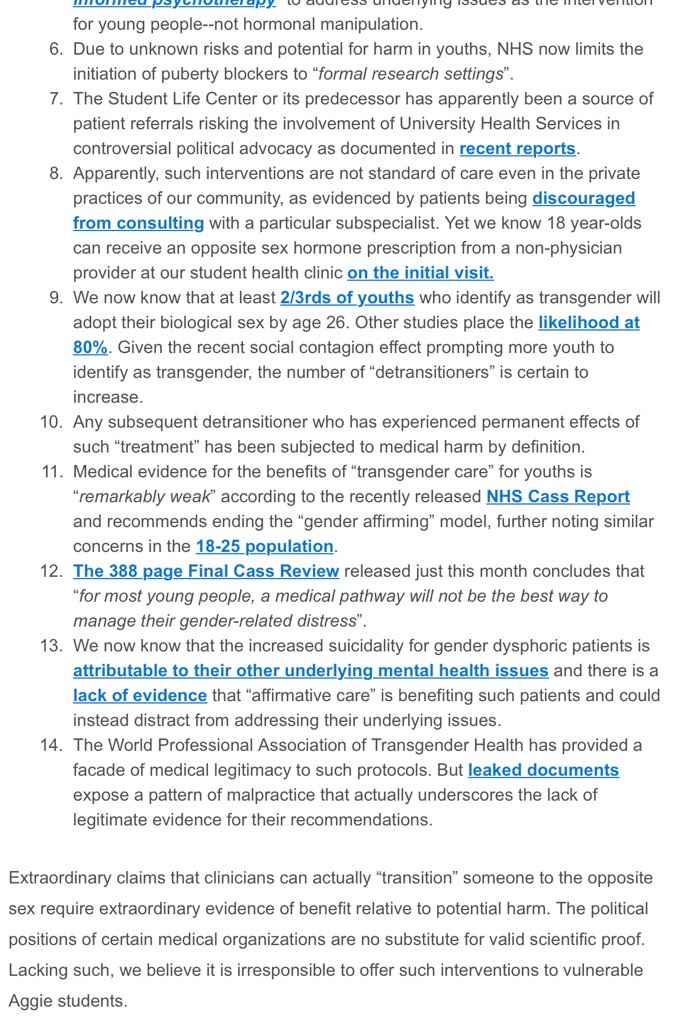
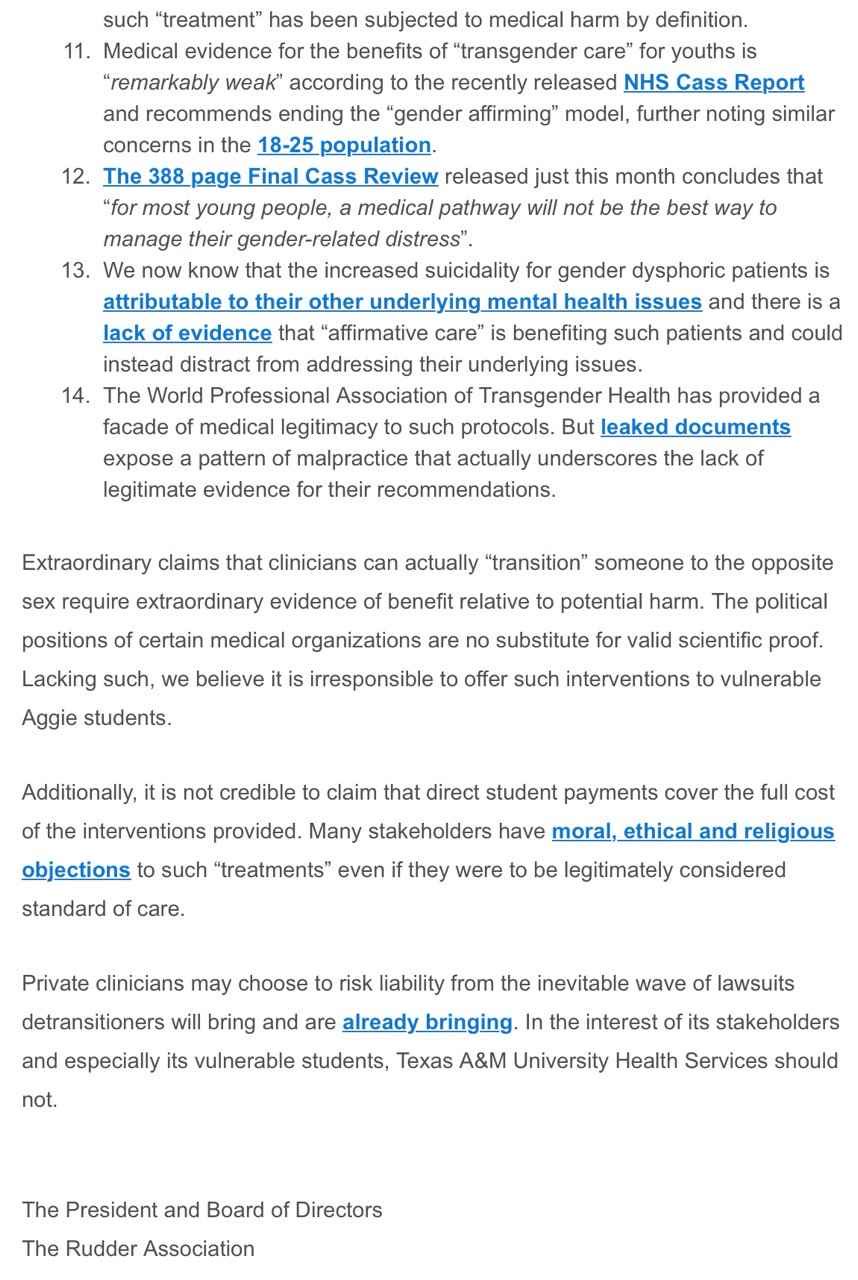
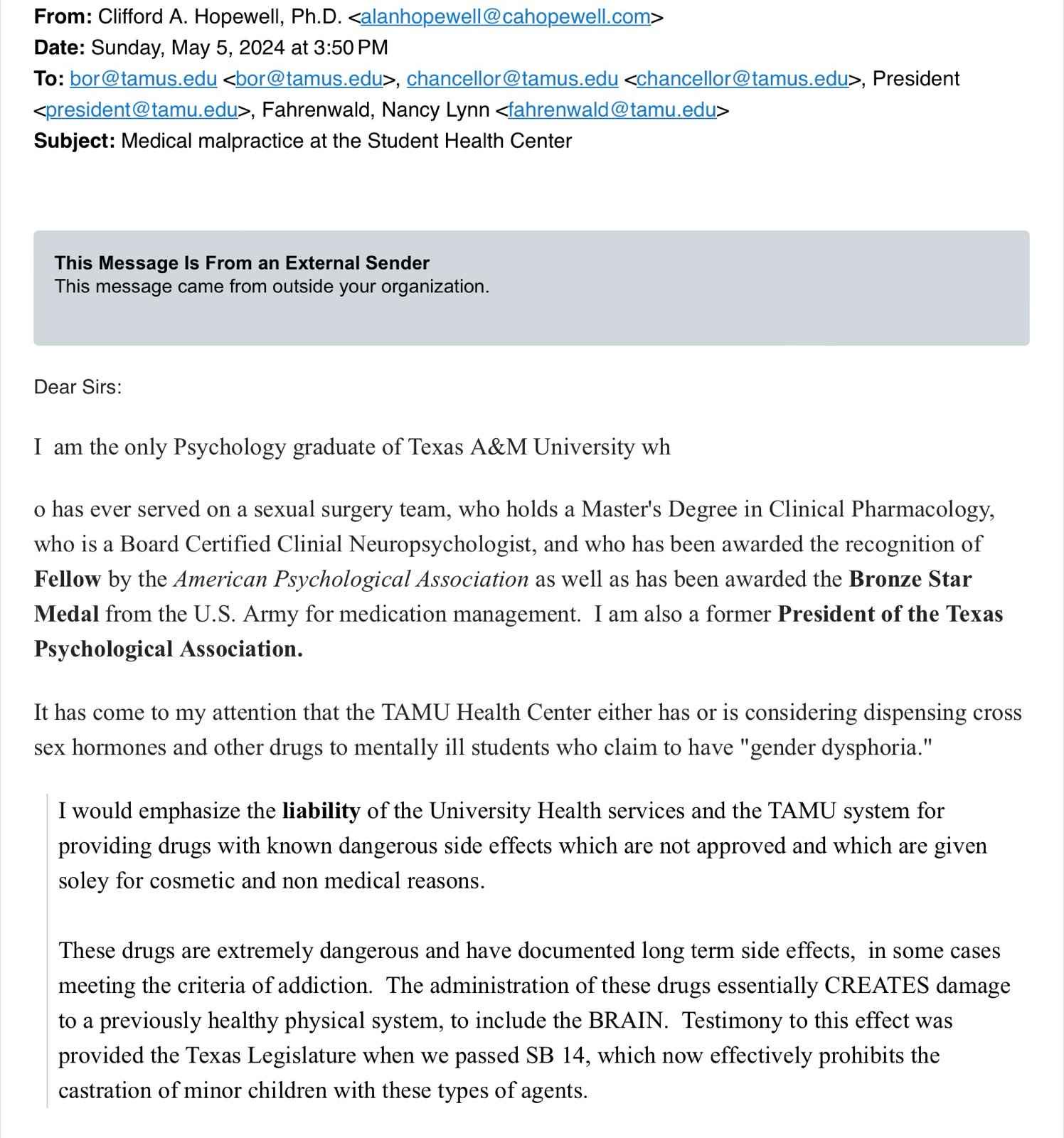
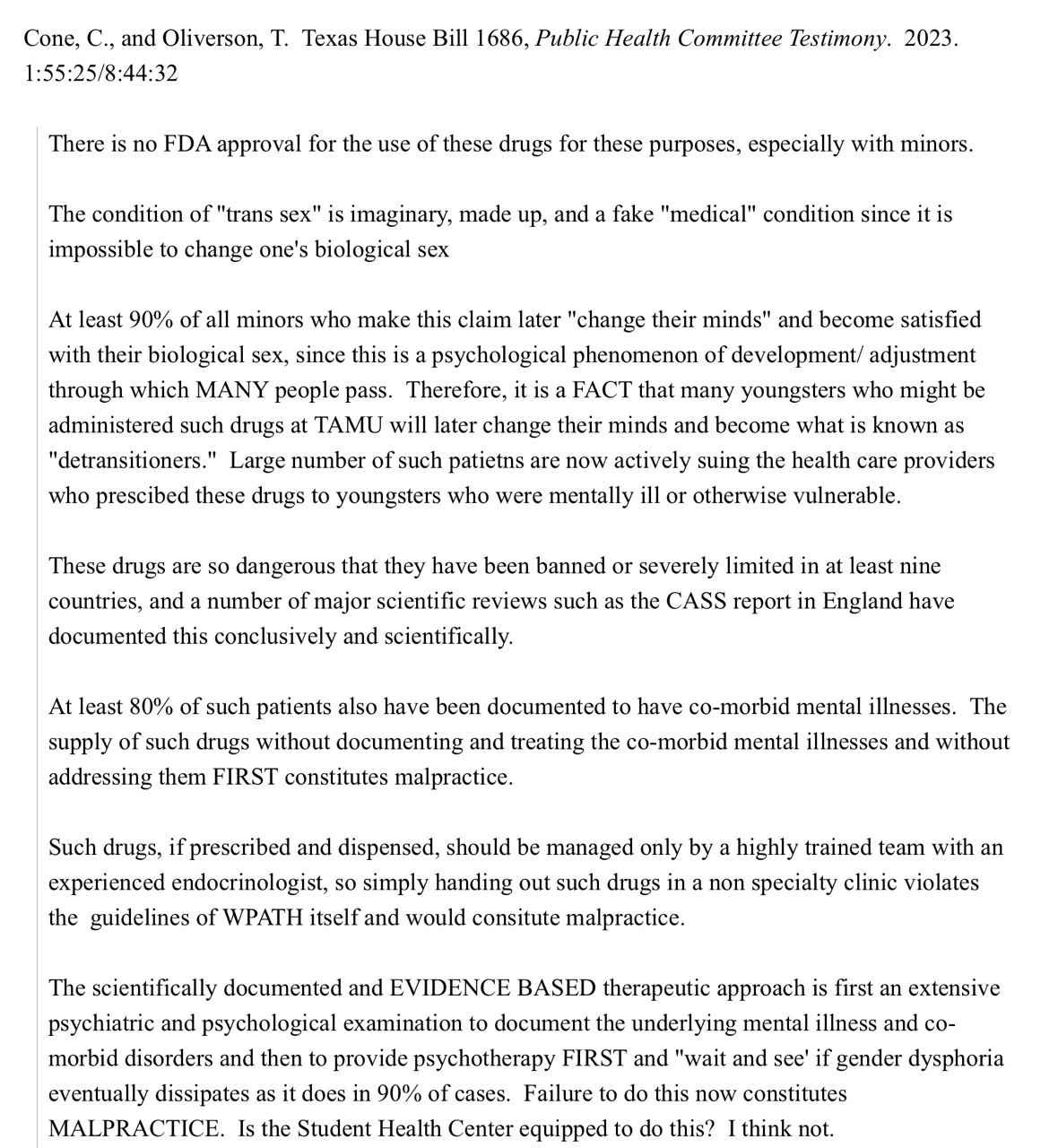



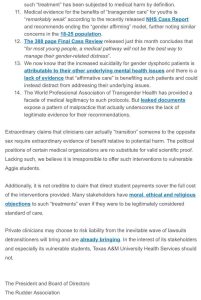
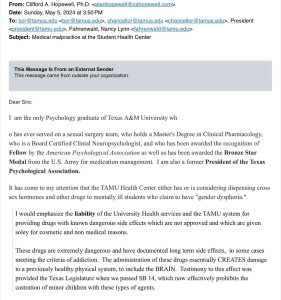


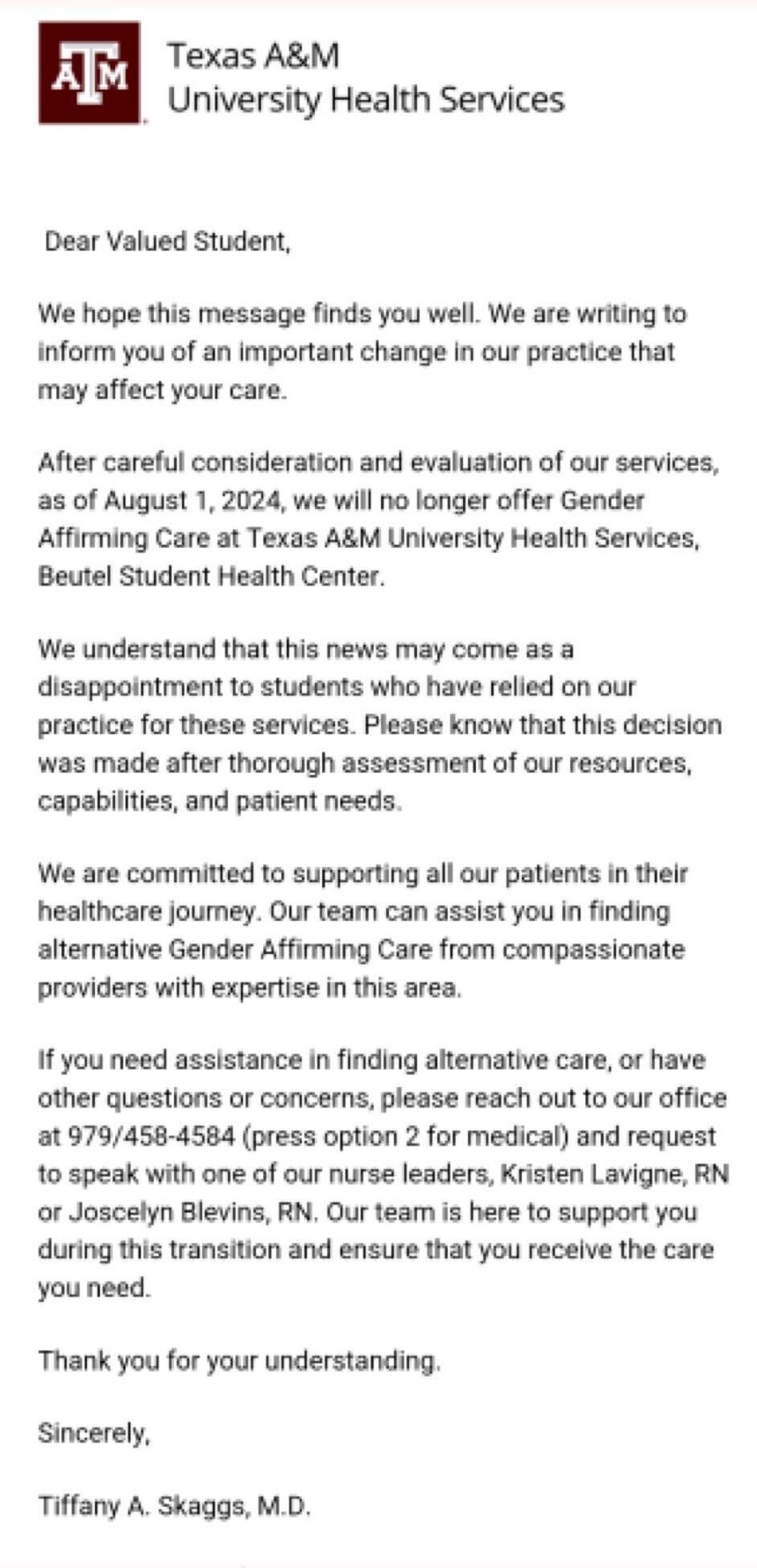
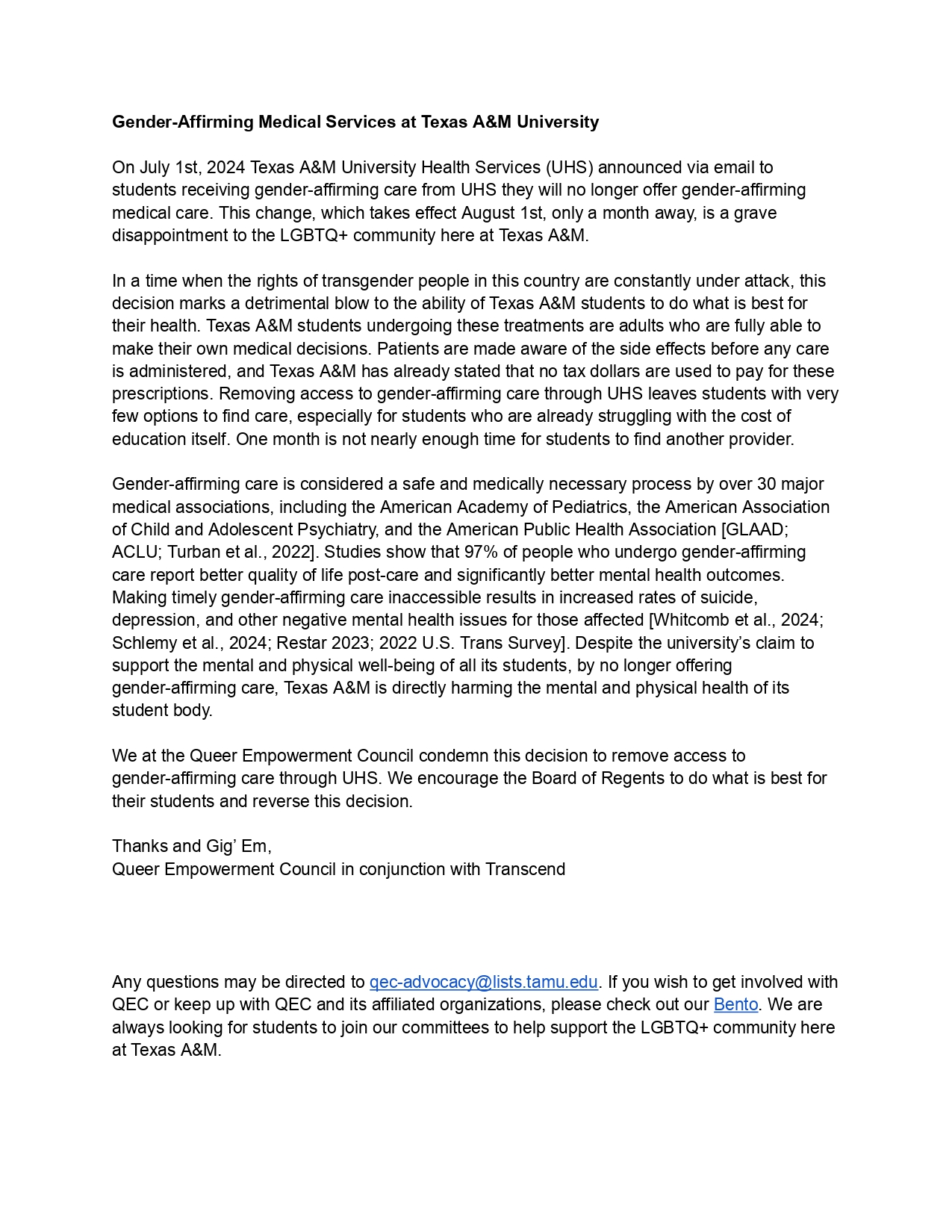

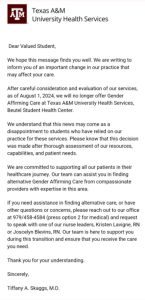
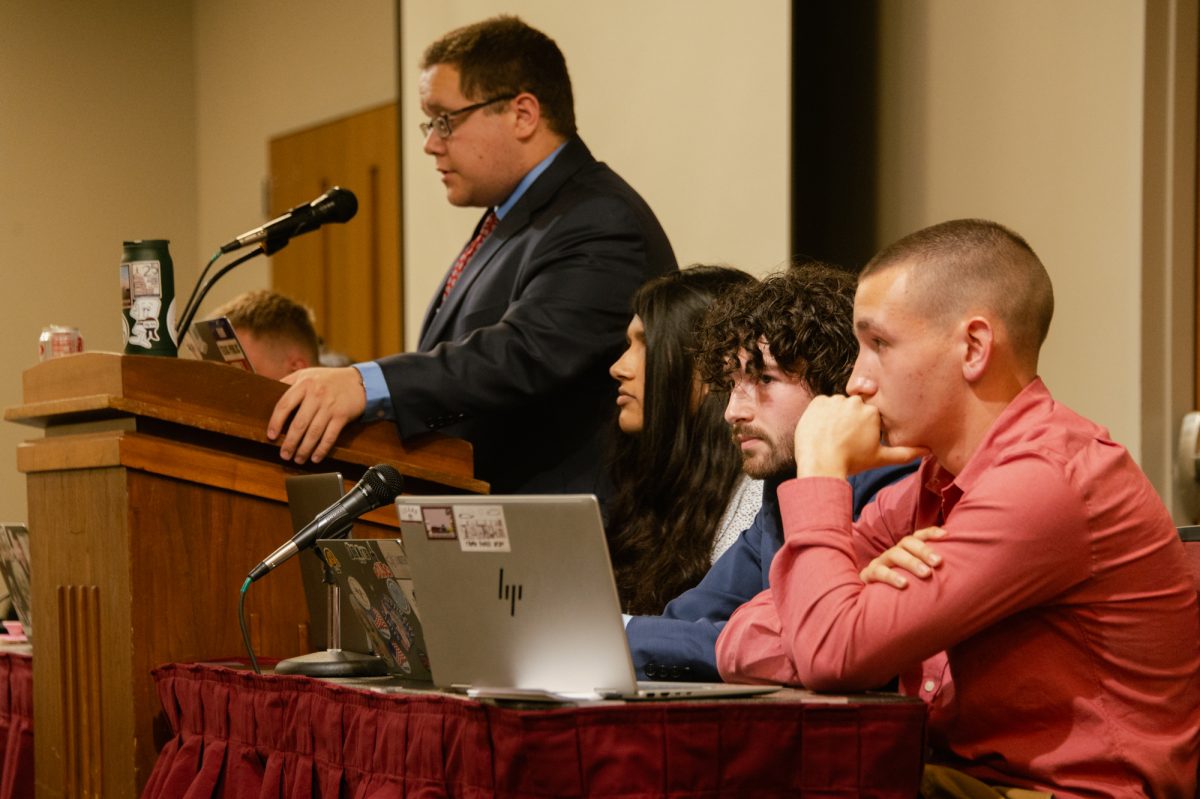


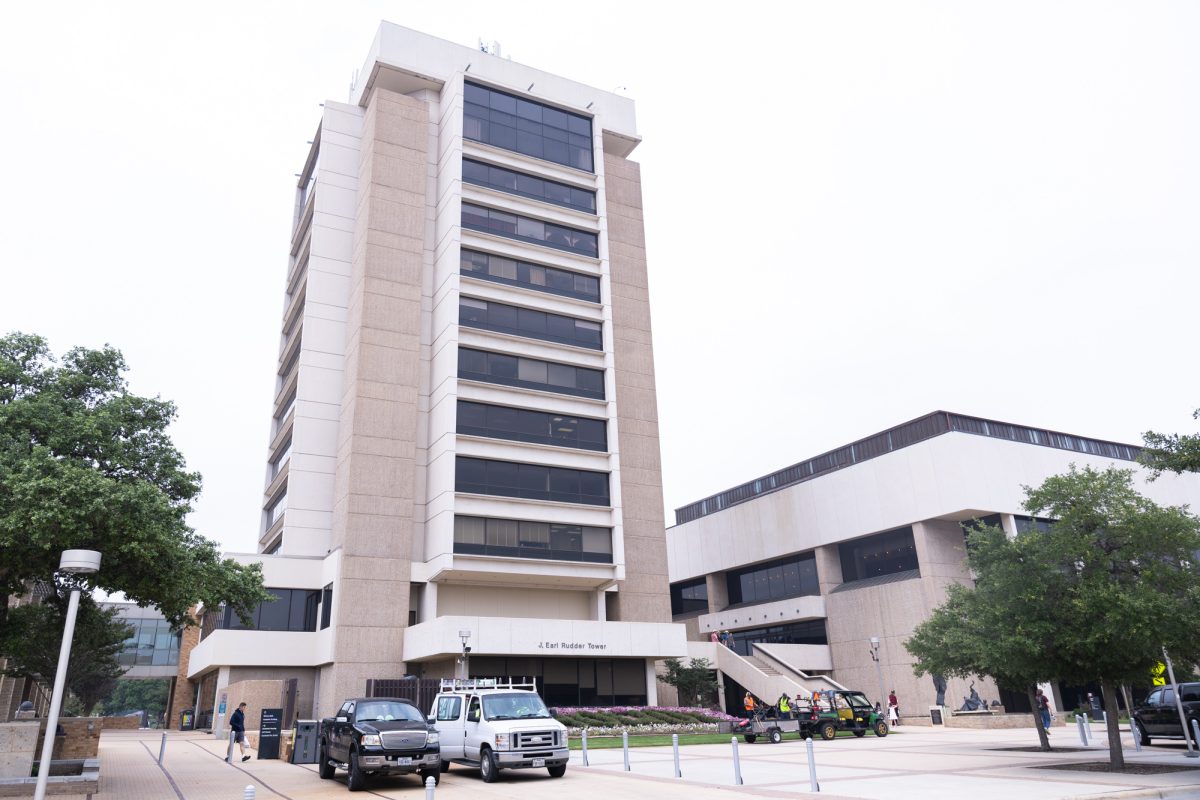




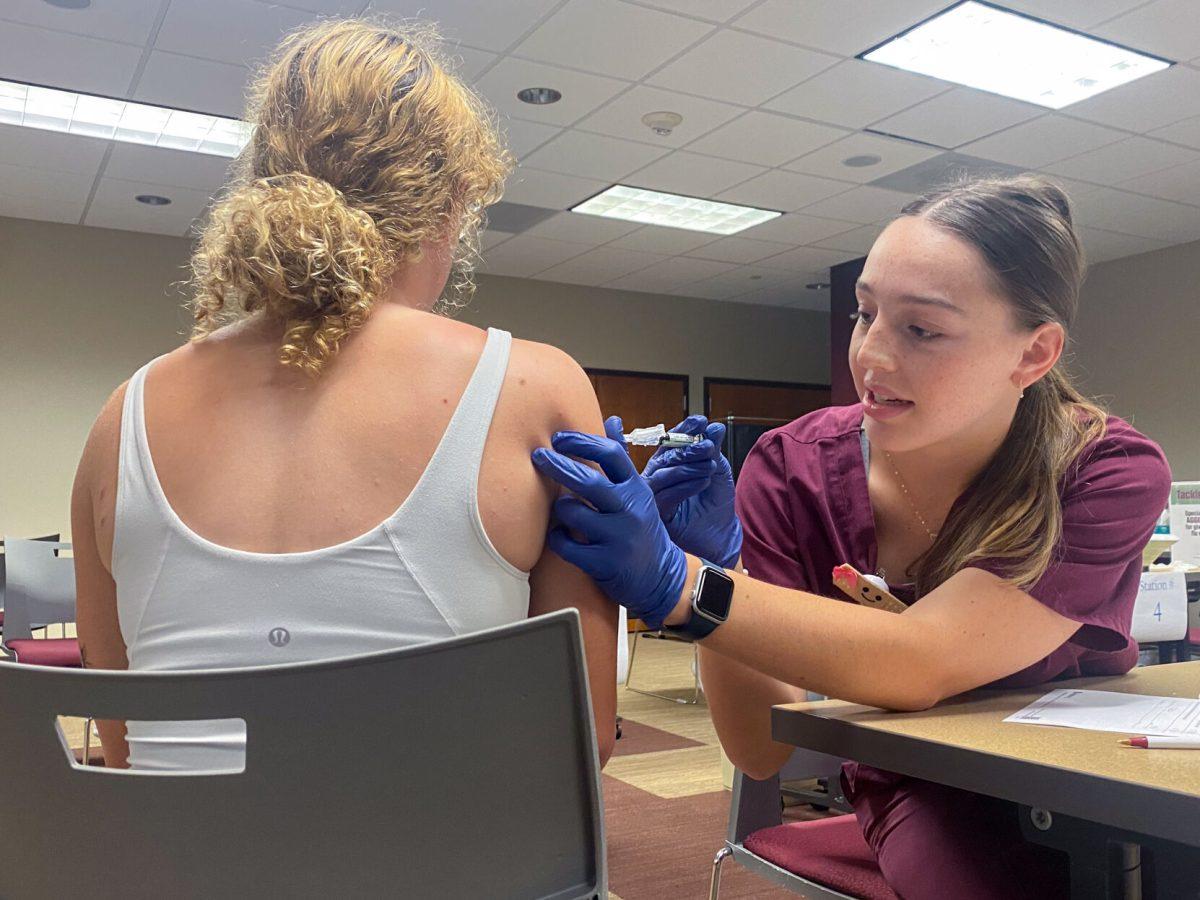




Kaylee • Sep 20, 2024 at 10:50 am
Good on Tamu! We should not and will not be funding for people to receive hormones even if they *think* they are a woman.
Rachel • Jul 18, 2024 at 10:15 pm
I need this medication. Without it my physical and mental health will degrade very quickly and I will not be able to study adequately. Shame on TRA for doing this.
Russ Mason • Jul 3, 2024 at 8:02 pm
Is this the same WHO run by the CPR . Nice reference material.
Emily • Jul 3, 2024 at 3:33 pm
It’s genuinely insane that the Rudder Foundation has so much influence over TAMU. The Board of Regents is bought and paid for, such a shame.